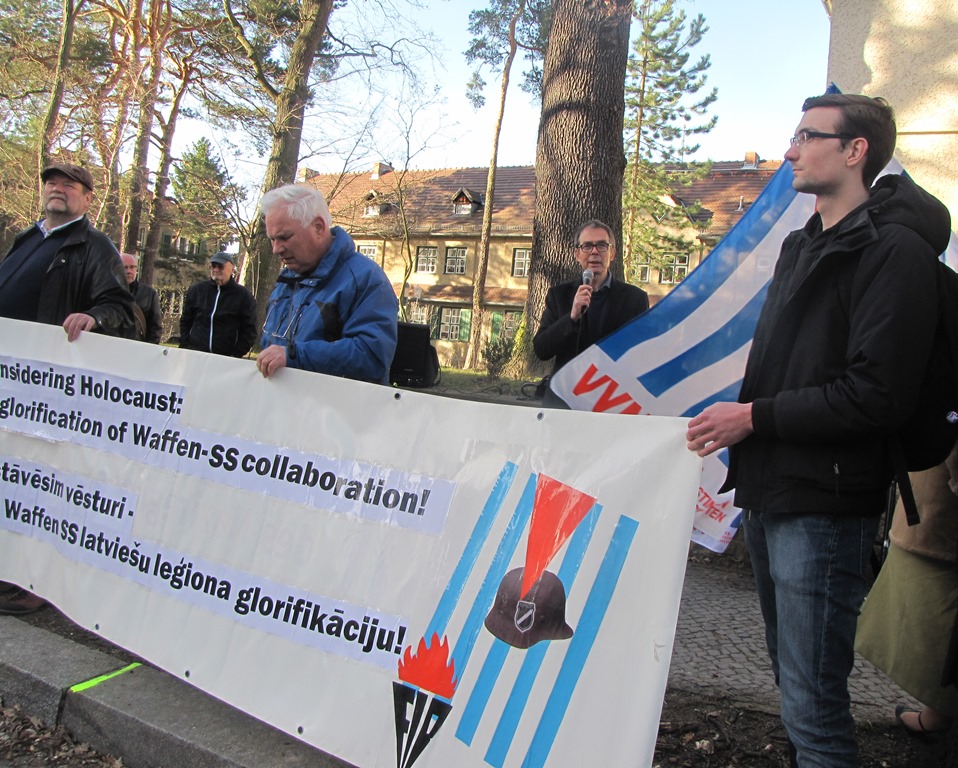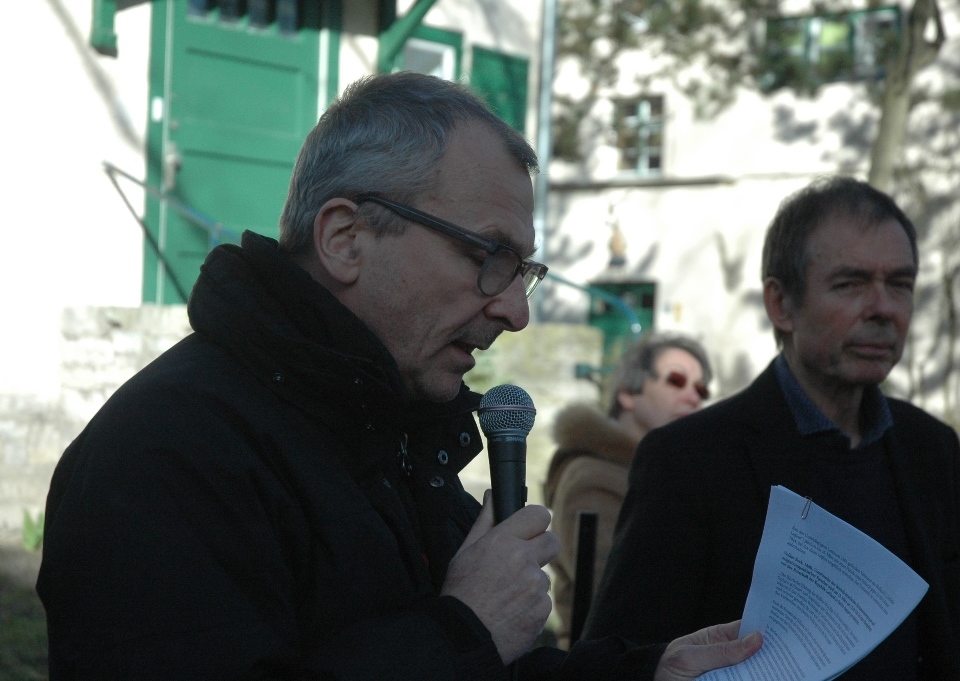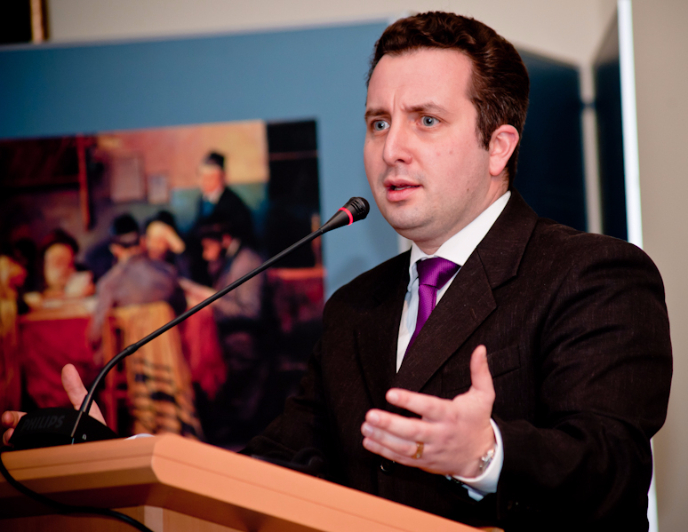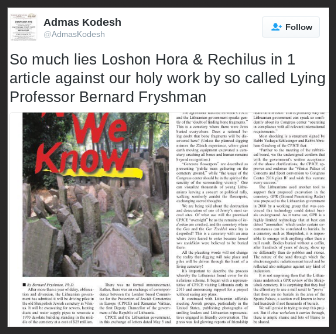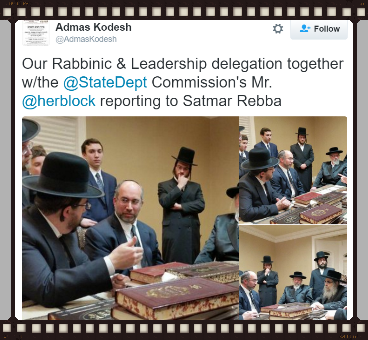PIRAMÓNT | PAPER TRAIL | OPPOSITION | CEMETERIES
◊
VILNIUS—Ruta Bloshtein, author of the international petition to save the old Jewish cemetery in Vilnius from a massive convention center project, and Meyshe Bairak, director of the Choral Synagogue of Kaunas and chair of the city’s religious community, today presented a copy of Ms. Bloshtein’s petition in the Lithuanian translation of Julius Norwilla to Government House in central Vilnius. The large swath of paper, visible in the informal photograph, on the public counter, is the printout of the nearly 39,000 signatures from all over the world garnered to date. Ms. Bloshtein is a native of Vilnius, Mr. Bairak of Kaunas. Both are scions of old Litvak Jewish families of many centuries’ vintage in the depths of Lithuania. Most of their relatives perished in the Holocaust.
